1, March 2023
Nigeria’s ruling party candidate Tinubu wins presidential election 0
Ruling party candidate Bola Tinubu won Nigeria’s highly disputed weekend election, electoral authorities said on Wednesday, securing the former Lagos governor the presidency of Africa’s most populous democracy.
With President Muhammadu Buhari stepping down after two terms, many Nigerians hoped Saturday’s vote would usher in a leader capable of tackling the country’s widening insecurity, economic malaise and growing poverty.
Tinubu, 70, the candidate for the All Progressives Congress (APC) party, won 8.8 million votes against 6.9 million for the opposition Peoples Democratic Party (PDP) candidate Atiku Abubakar and 6.1 million for the Labour Party’s Peter Obi, according to final results.
The Independent National Electoral Commission, or INEC, confirmed Tinubu also secured the required 25 percent of votes in two-thirds of Nigeria’s 36 states and capital, a threshold to be confirmed president.
“Tinubu, Bola Ahmed, of the APC, having satisfied the requirements of the law, is hereby declared the winner and is returned elected,” INEC chairman Mahmood Yakubu said.
Even before the final tallies, Labour and PDP had already called for the vote to be cancelled, alleging massive manipulation of the results. It was not clear whether they would take their case to court.
Tinubu, 70, a longtime political kingmaker who ran on his experience as Lagos governor from 1999 to 2007, campaigned saying “It’s my turn” to govern Africa’s largest economy.
He promised “Renewed Hope” but faced questions from rivals over his health, past graft accusations and ties to Buhari, who many critics say failed in his promise to make Nigeria safer.
Supporters cheered and danced to Afrobeats music at the APC’s campaign headquarters in the capital Abuja as the final results were being tallied in the early hours of Wednesday.
“He had done it before, and we know that he will do better than what he did in Lagos,” said supporter Adenike Mutiat Abubakar, 43. “He’s the man of the people, so that’s why everybody wants him.”
Tight race
The election was a tight race for the first time since Nigeria ended military rule in 1999, after the Labour Party’s Obi, 61, drew younger voters with his message of change from his political old-guard rivals.
PDP’s Abubakar, a 76-year-old businessman and former vice president, lost his sixth attempt at the presidency.
Saturday’s voting was mostly peaceful, but was troubled by long delays at many polling stations and some intimidation by thugs, while technical hitches disrupted the uploading of results to the INEC’s central website, fuelling concerns over vote rigging.
“The election is irretrievably compromised,” Labour Party chairman Julius Abure told reporters on Tuesday. “We demand that this sham of an election should be immediately cancelled.”
The INEC introduced biometric voter identification technology for the first time at the national level and its IReV central database for uploading results to improve transparency.
But opposition parties said failures in the system to upload tallies allowed for ballot manipulation and disparities in the results from the manual counts at local polling stations.
Nigerian elections have often been marred by vote rigging, ballot buying, violence and clashes between rival parties.
But the INEC dismissed opposition allegations.
“Contrary to the insinuation by both parties, results emanating from the States point to a free, fair and credible process,” the INEC said.
It said parties should allow the process to run its course and then take their claims to court.
But international observers, including from the European Union, noted major logistical problems, disenfranchised voters and a lack of transparency by the INEC.
In 2019, the INEC was forced to delay the election by a week just hours before voting started. PDP’s Abubakar cried fraud when Buhari beat him that time around, but the country’s Supreme Court later tossed out his claim.
Lagos surprise
One surprise result was Obi’s victory in Lagos, the state with the largest number of registered voters and the traditional bastion of APC’s Tinubu, known as the “Godfather of Lagos”.
After a grassroots and social media campaign, Obi, a former Anambra State governor, managed to attract voters with a message that he offered change from Nigeria’s establishment politics.
The state’s eponymous megacity has put Nigeria on the cultural map with its glitzy Nollywood film scene and global Afrobeats stars like Burna Boy, but nearly half of Nigerians live in poverty and inflation is in double digits.
Security challenges awaiting Nigeria’s next leader are huge.
A grinding Islamist insurgency in the northeast has displaced more than 2 million, bandit militias carry out mass abductions in the northwest and separatists attack police in the southeast.
Nigeria is Africa’s top oil producer but struggles with sporadic fuel shortages, huge energy import bills due to a lack of refineries and crude theft from its wells and pipelines.
Source: AFP
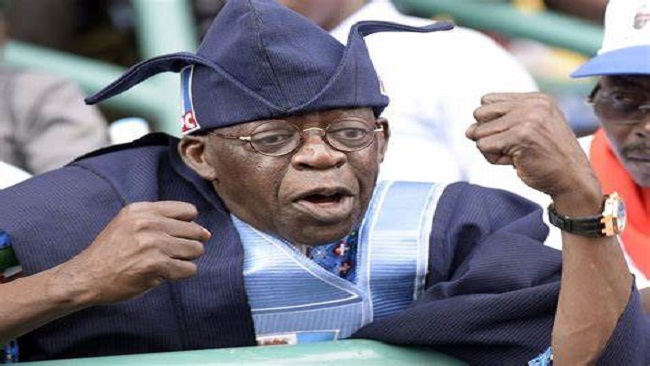





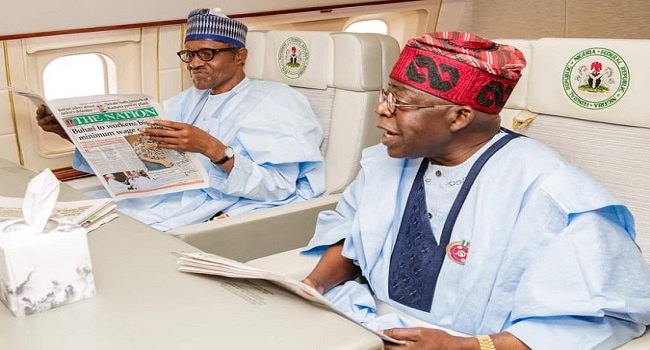
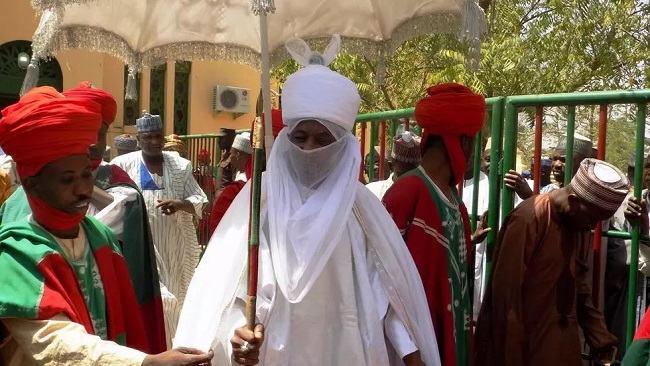
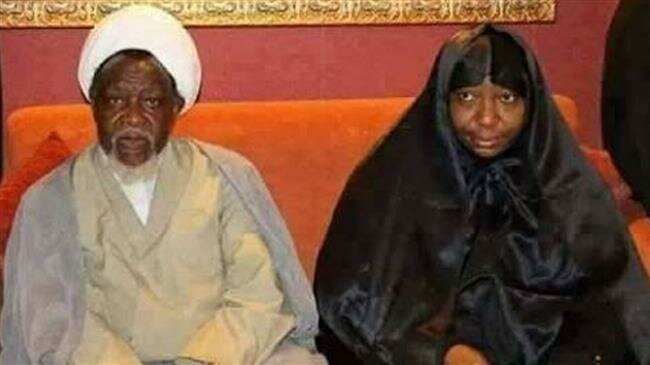










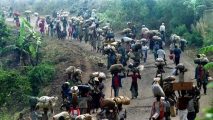


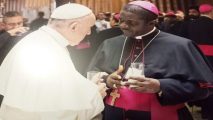


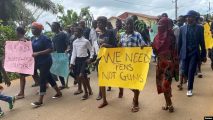
29, May 2023
Nigeria’s political ‘godfather’ Bola Tinubu sworn in as president 0
The 71-year-old southerner took over from a 80-year-old northerner as Africa’s most populous nation faces a sea of economic troubles and security challenges.
“As president of the Federal Republic of Nigeria I will discharge my duties and perform my functions honestly to the best of my ability, faithfully and in accordance with the constitution,” Tinubu said in a live broadcast from the capital Abuja’s Eagle Square.
Foreign leaders and representatives present at the ceremony included presidents Cyril Ramaphosa of South Africa, Paul Kagame of Rwanda and Nana Akufo-Addo of Ghana as well as delegations from the US, Britain and China.
Kashim Shettima was sworn in as vice president, taking over from Yemi Osinbajo.
The ruling party duo were declared winners of the February 25 election, gaining the highest number of votes — 8.8 million — and picking up the required number of ballots across two-thirds of Nigeria’s states.
But Tinubu only garnered just over a third of the total vote, leaving him with a weak mandate, some analysts say.
The poor showing reflects “widespread disenchantment with his party’s record… along with misgivings about his personal eligibility for the office,” the International Crisis Group (ICG) think tank said in a note.
Dubbed a political “godfather,” Tinubu campaigned on the slogan “it’s my turn” to govern the country, Africa’s biggest economy.
He has touted his experience as Lagos governor from 1999 to 2007 — a period that, supporters say, modernised Lagos, Nigeria’s commercial hub.
But the new president also faces corruption allegations, which he denies, and questions over his health.
Opposition leaders Atiku Abubakar, who came second, and Peter Obi, who was third, are contesting election results in court, claiming fraud.
The electoral commission acknowledged “glitches” during the vote but dismissed claims that the process was not free and fair.
Continuation
Buhari had promised to tackle graft and insecurity but disappointed many.
He bequeaths his successor mounting debt and inflation, as well as deepening concern over attacks and kidnappings by armed groups.
His presidency showed “it is possible for an individual believed by many to be personally incorruptible to preside over an administration that is nonetheless defined by corruption and rank incompetence,” said Ebenezer Obadare of the Council on Foreign Relations, a Washington-based think tank.
“Nigerians will soon find out whether a leader widely seen as corrupt can preside over a relatively malfeasance-free and reasonably competent administration,” Obadare wrote in a blog.
Buhari is expected to leave Abuja on Monday to spend time at his farm in Daura, in Katsina State, near the border with Niger.
The two men might be different in style and reputation, but they also have key similarities.
They both adhere to Islam and are of an advanced age, in a country divided between Christians and Muslims and where the median age is 18.
Buhari made repeated medical trips to the UK when he was president, while Tinubu spent time abroad during the campaign and between the election and inauguration.
Speculation about Tinubu’s health is widespread, prompting attention to turn to his deputy Shettima, a 56-year-old former governor of the northern state of Borno.
Debt, insecurity
The new government faces a mountain of urgent work, starting with the economy.
One of the main challenges for oil-rich Nigeria is that it swaps crude worth billions of dollars for gasoline that it then subsidises for its domestic market.
This has caused a huge drain on revenue and foreign exchange, contributing to ballooning debt.
More than 80 million of the country’s estimated 210 million people live below the poverty line, according to the World Bank, and the UN has warned that over of a quarter of those are facing acute hunger this year.
Despite thriving tech and entertainment sectors, many middle-class Nigerians are moving abroad hoping for a brighter future.
Another priority for the incoming government will be to address insecurity, which has spread like wildfire in recent years.
Troops are battling gangs of heavily armed criminals and kidnappers in central and northwestern states, oil thieves, pirates and separatists in the southeast, and a 14-year-old jihadist insurgency in the northeast.
Complicating matters, national assembly elections produced greater political plurality this year, with seven parties represented in the incoming senate and eight in the next house of representatives.
“The next administration will need to work overtime to garner consensus on the legislative agenda,” said Afolabi Adekaiyaoja in a report for the Abuja-based Centre for Democracy and Development.
Governors, who also wield substantial power in Nigeria, were also being sworn in on Monday.
Source: AFP with additional reporting by Engelis Okesack Besong